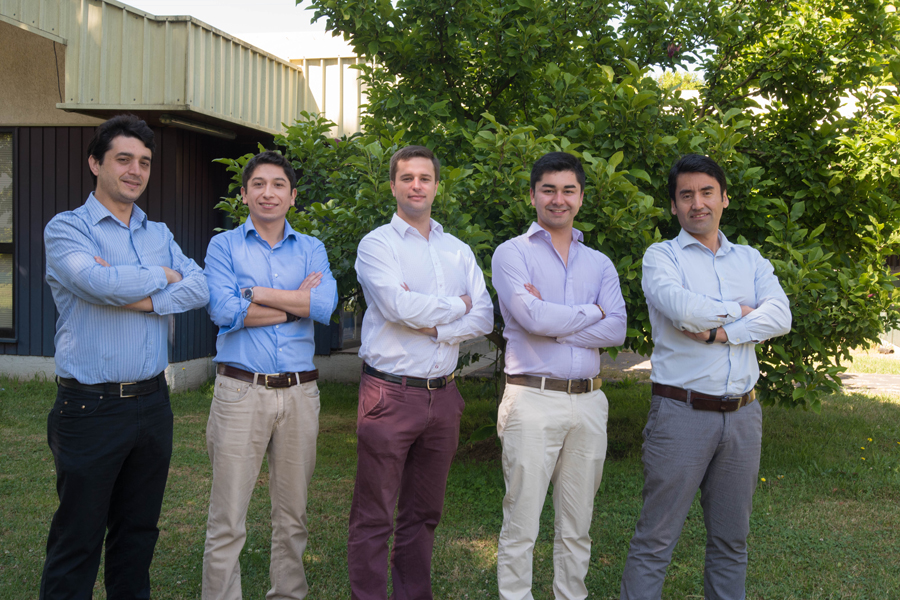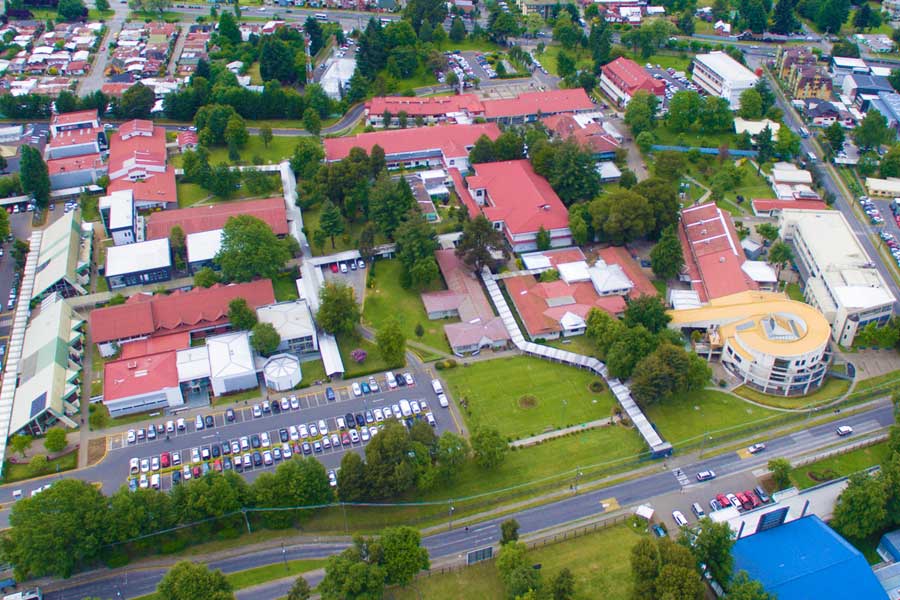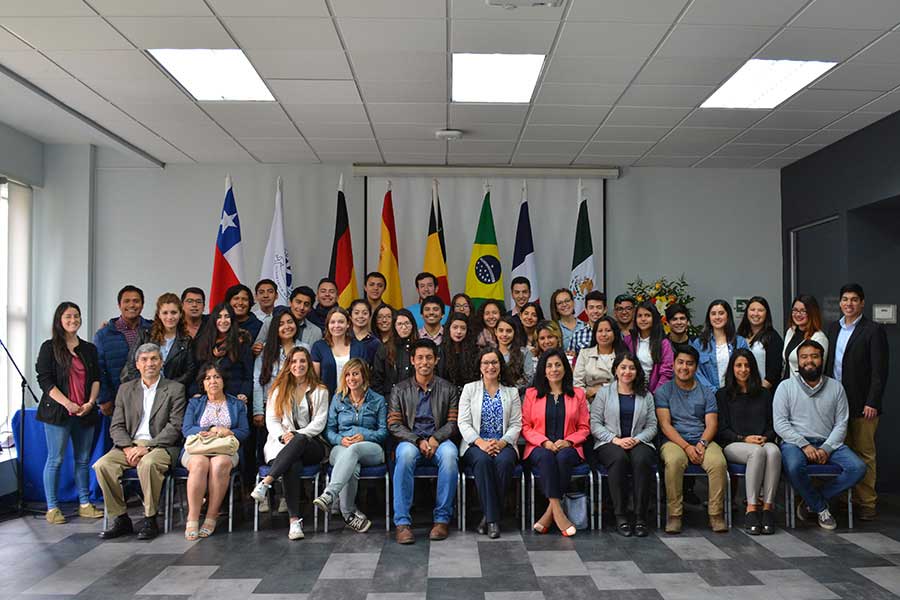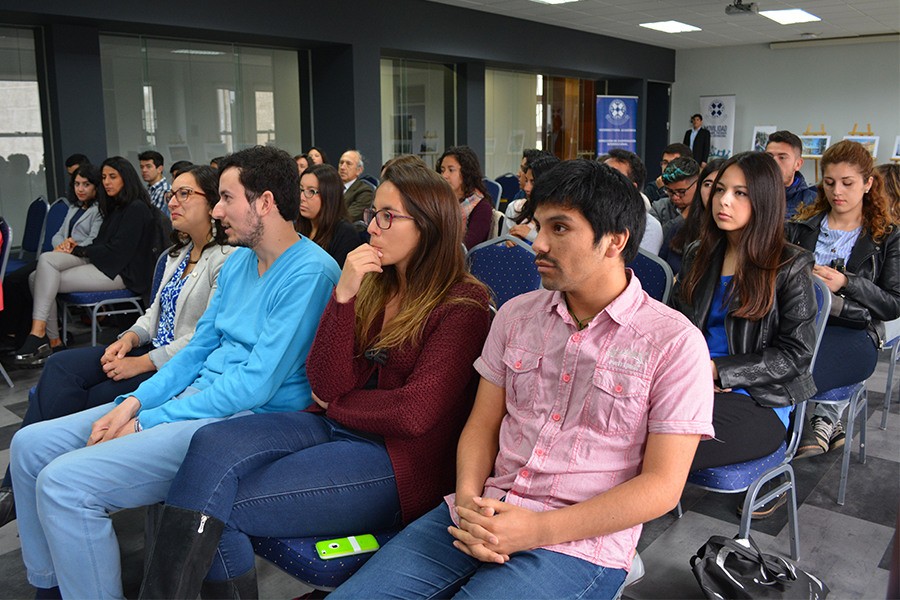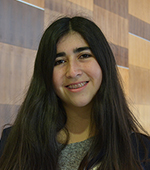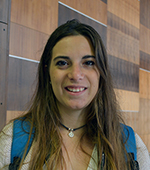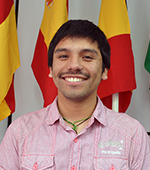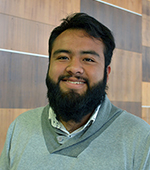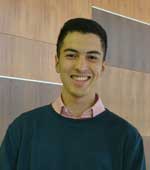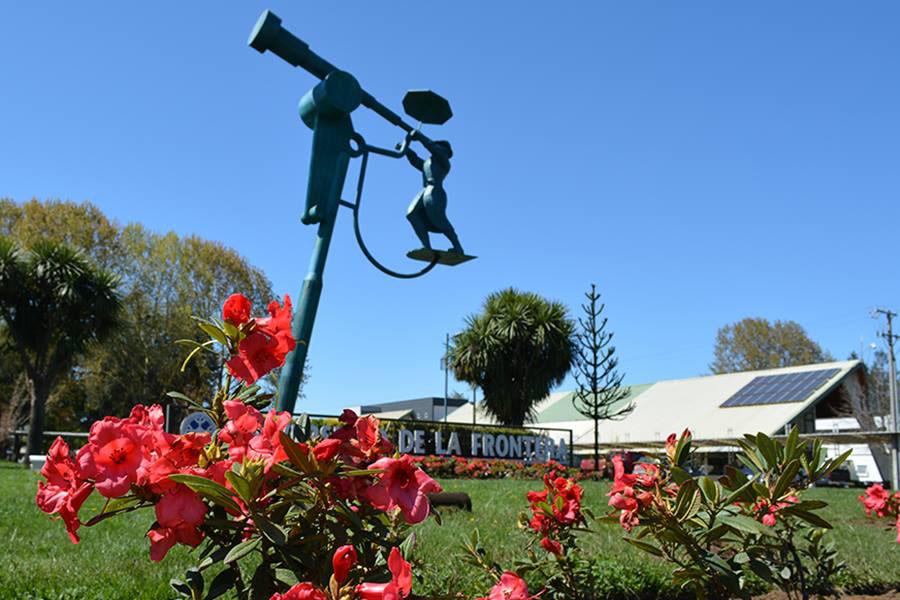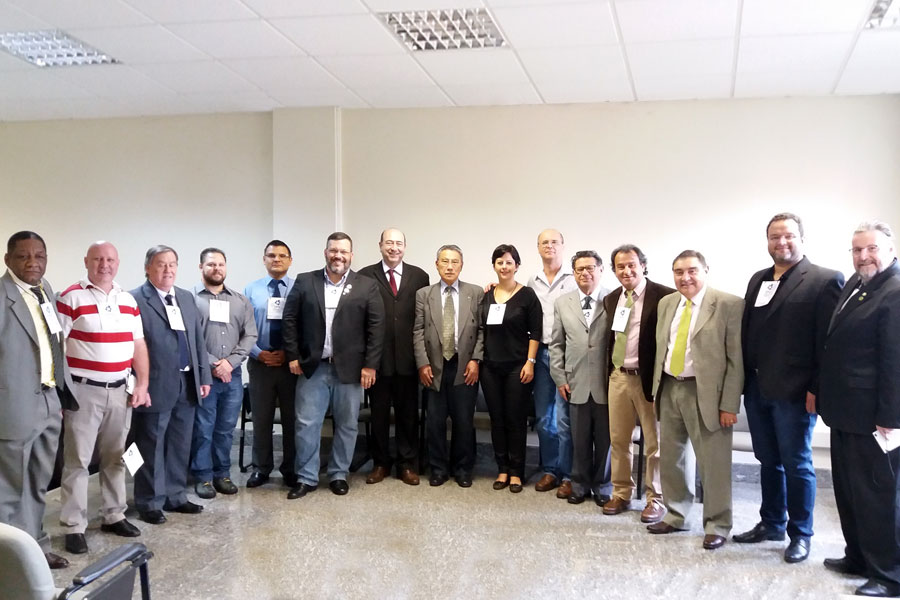|
|
Companies in Santiago, Chillán, Puerto Varas and Temuco joint the projects presented by the Universidad de La Frontera to the Voucher Program of CORFO and Regional Prototype. It is an investment of more than 166 thousand Chilean pesos. Eleven UFRO researchers, who are conscious that innovation is important for the future of Chile, sent their projects to the CORFO competition in order to introduce improvement in national companies that want to provide better service for the community. Soil improvement, recycled concrete blocks development, electricity generation, lanolin extraction, surveillance systems and prototype generation are some of the ideas by the researchers of our institution. It is an investment of more than 166 thousand Chilean pesos that will help to introduce research, development and innovation (R&D&I) to regional companies. The director of Innovation and Technology Transfer (DITT), Claudina Uribe, states that this as a confirmation of the work they outlined in 2017. “This is the result of a strategic plan that has to do with our cooperation with the companies. We wanted them to have the confidence to reach out to the research units of the UFRO and to ask for our researchers to participate in technological solutions that respond to their needs.” EFFECTIVE LINKS With the aim of strengthening the links of the UFRO with the socio-productive medium, DITT wants to contribute to the relation between science and companies, support entrepreneurship, local and regional innovation, processes of licensing and the participation and collaboration with associated R&D&I entities. “We could observe that the productive sector has been sensitized with regard to the importance of knowledge, since the companies understood that innovation is important for a competitive advantage. In this regard, our task is to support the researchers, so they can work successfully in this cooperation between science and companies”, she pointed out. PROGRAM OF COOPERATION BETWEEN SCIENCE AND COMPANIES The Program of Cooperation between Science and Companies was created in 2017. Its main objective is to increase the number of companies that develop R&D&I projects and the rate of postulated and awarded projects with regional companies. Some of the actions of operationalization of this program are prepared under the initiative called “Innovation Communities”, in which different public institutions and groups of businessmen come together with academic staff members of the university. This does not only show the capabilities but also successful experiences of cooperation, through projects and services, presented by the businessmen themselves to their peers. ASSOCIATED COMPANIES
INNOVATION VOUCHER The initiative wants the companies to develop solutions for challenges they cannot confront themselves, through the cooperation with knowledge providers, such as universities, research centers and others who are specialized in projects of punctual innovation and initial complexity. WINNERS INNOVATION VOUCHER CORFO Director: Marcela Calabi Project title: Development of an organomineral substrate based on mushroom compost, capable of improving the soil quality for ornamental plant propagation and cultivation. Company: Agroindustrial Milagros BIOREN Amount awarded: 7.780.000 Chilean pesos
Director: Juan Pablo Cárdenas Project title: Development of a low-cost concrete block on the basis of recycled rubber and glass. Company: Andrés Gutiérrez Santibáñez Faculty of Engineering and Science Amount awarded: 7.780.000 Chilean pesos
Director: Boris Pavés Project title: Development of a playground for children and teenagers that generates its own power. Company: Patio de Recreo Amount awarded: 8.400.000 Chilean pesos
Director: Jorge Díaz Project title: Design, development and implementation of a computer system of comprehensive transportation business management. Company: Asesorías Genera Ltda. Faculty of Engineering and Science Amount awarded: 7.780.000 Chilean pesos
Director: Gustavo Ciudad Project title: Design of a lanolin extraction process from sheep´s wool from the center and south of Chile. Company: Ricardo Salazar Faculty of Engineering and Science Amount awarded: 7.780.000 Chilean pesos
Director: Francisca Acevedo Project title: Design, development of a hydrogel face mask based on Ulmoplus to prevent wrinkles. Company: Andes Nutraclinic Faculty of Medicine Amount awarded: 7.780.000 Chilean pesos
Director: Fernando Huenupán Project title: Development and implementation of a surveillance system for truck fleets, through the use of drones integrated into the truck cabin. Company: Comercial Patagonia Market Ltda Faculty of Engineering and Science Amount awarded: 7.780.000 Chilean pesos
Director: Francisca Acevedo Project title: Development of a dermal cream “EudemoniAftertattoo” for tattoo skin preparation and aftercare. Company: Eudemoni House Faculty of Medicine Amount awarded: 7.780.000 Chilean pesos
Director: María Antonieta Ruiz Project title: Valorization of waste of potatoes with colored flesh after pigment extraction for their potential industrial use. Company: Nova Seed Faculty of Engineering and Science Amount awarded: 7.780.000 Chilean pesos
Director: Jorge Hochstetter Project title: Teachers´ blackboards. Company: Salgado Mathieu SpA Faculty of Engineering and Science (Engineering 2030) Amount awarded: 7.550.000 Chilean pesos
COMPETITION REGIONAL PROTOTYPE Director: Víctor Albornoz, DITT Project code: 17IPIREL-88466 Project title: Low-cost wood protector. Company: Bioinnova SpA Amount awarded: 45.188.160 Chilean pesos
Director: Renato Hunter Project code: Project title: APR chlorine dispenser prototype. Company: Mario Morales EIRL Faulty of Engineering and Science (Engineering 2030) Amount awarded: 43.115.000 Chilean pesos
Escrito por: Lorena Espinoza
Vice-rectorate of Research and Postgraduate Studies |
PROGRAM OF COOPERATION BETWEEN SCIENCE AND COMPANIES
The Program of Cooperation between Science and Companies was created in 2017. Its main objective is to increase the number of companies that develop R&D&I projects and the rate of postulated and awarded projects with regional companies.
Some of the actions of operationalization of this program are prepared under the initiative called “Innovation Communities”, in which different public institutions and groups of businessmen come together with academic staff members of the university. This does not only show the capabilities but also successful experiences of cooperation, through projects and services, presented by the businessmen themselves to their peers.
328 companies with potential to work with the university have been identified and 42 alliances could be determined.
ASSOCIATED COMPANIES
Agroindustrial Milagros - Temuco
Patio de Recreo - Temuco
Asesorías Genera Ltda. - Temuco
Ricardo Salazar - Chillán
Andes Nutraclinic - Santiago
Comercial Patagonia Market Limitada- Temuco
EudemoniHouse - Temuco
NovaSeed- Puerto Varas
Pizarrón del Profe–Temuco
Bioinnova SPA- Temuco
Mario Morales EIRL- Santiago
|
A new achievement of the University of La Frontera. This year, our institution is in 12th place of the general classification of the Universities Ranking by the Copesa Group and after 12 years, we were able to improve in the dimension “Quality perceived by employers”. |
It is the 18th version of the ranking and the University of La Frontera obtained encouraging results. This consolidates a successful year regarding the factors considered. In the general classification, the UFRO improved one position and is now in 12th place. In the dimension “Quality Perception” the UFRO made a qualitative and quantitative step up, from 20th place in 2016 to 16th place in 2017, and in the dimension “Management” it climbed 5 positions up. CLICK HERE TO SEE THE CHILEAN UNIVERSITY RANKING
 Written by: Dirección de Comunicaciones Written by: Dirección de ComunicacionesThis email address is being protected from spambots. You need JavaScript enabled to view it. |
It is the 18th version of the ranking and the University of La Frontera obtained encouraging results. This consolidates a successful year regarding the factors considered. In the general classification, the UFRO improved one position and is now in 12th place. In the dimension “Quality Perception” the UFRO made a qualitative and quantitative step up, from 20th place in 2016 to 16th place in 2017, and in the dimension “Management” it climbed 5 positions up.
“The results of national and international rankings play an important role in public conversations about the prestige of universities. At the same time, they are a measurement method and source for reputation and because of that, since some years ago, they also are one of the indicators of our strategic plan. In addition, it is also a merit for a regional and state university to achieve better results each time, since Chile is a highly centralized country. Getting results like this in the University Quality Ranking of the Copesa Group motivates us to keep working for excellence, each day and in each of our actions”, the rector, Sergio Bravo, commented.
PERCEIVED QUALITY
One of the institutional achievements in this version of the ranking is the result in the dimension “Perceived Quality” that registers the level of knowledge and estimation of employers regarding the universities. On this occasion, one thousand employers – who directly or indirectly decide in the hiring process of future professionals – have been surveyed. In order to avoid bias, the grade each employer gives to the institution he/she studied at have not been considered.
“Being responsible for the communication strategies of our institution, I am extremely proud of this result. Not only because it confirms the institutional decision to create a Communications Direction and to include it in the directive group of the university, but also because receiving a better perception by employers, creates new opportunities for our graduates and academic staff members. Also because with this task, the institution has a better understanding of the transformative and not only disseminative role of university communication”, the director of Communications, Carola Espinoza, pointed out.
She adds that in 2018 she hopes that the university’s internal strategic communication culture will get strengthened and that every member of the UFRO community will assess his/her role to build a strong reputation. “The function of communication within an organization is to convert the objective quality into perceived and valued quality. This is what pushes the university towards reputation levels of excellence. For being able to achieve this, it is necessary to be, act and communicate with consistency – a task in which each UFRO staff member plays an essential role.”
MANAGEMENT QUALITY
Out of the four factors considered by the ranking in order to assess the dimension “Management Quality”, the factors institutional accreditation and number of full-time students are the ones with a higher preponderance. The other two factors are the retention rate and the timely graduation. Regarding this last factor, the UFRO shows an average of 1,5 semesters of difference between the formal and the actual duration of the programs. This puts the UFRO in second place at the national level.
In the overall ranking, the UFRO is on the ninth place in the dimension “Management Quality”, improving five positions compared to 2016.
“These university rankings fulfill a social function, because they give information to students, academic staff and researchers at the moment of choosing the university they want to go to or they are at. They are also a work tool for the employees in charge of directive management and they act as a barometer of comprehensive quality. From this perspective, they are our feedback for the quality system and help us to develop our internal culture of continuous improvement”, the director of Academic Quality, Dr. Martha Ramirez, pointed out.
According to the University Ranking, this year, 14 institutions maintained their position – three more than in 2016 – 12 universities moved down and 14 climbed up.
CLICK HERE TO SEE THE CHILEAN UNIVERSITY RANKING
Written by: Direction of Communications
|
For the first time, the UFRO accomplished to be in Group 4 of complex universities and is ranked in fourth place of this category. |
The University of La Frontera again achieved to be ranked in a highly important ranking in Chile. According to the Ranking of Quality of the Chilean Universities 2017, prepared by the Advanced Studies Group (GEA) Universitas and El Mercurio, for the first time, the UFRO enters Group 4 of Universities of Research and Doctoral Programs. “We are finishing this year with important institutional achievements that permit us to give an account of our management which is inspired by the constant improvement of quality standards and the increase in research and scientific productivity, which without a doubt reflects our performance, our management skills and the strengthening of leadership in the south of Chile”, the rector Sergio Bravo stated. This new list only includes universities that do research. They are situated in Group 3 or 4 and ranked by four indicators: publications per academic staff member (20%), citations per publication (30%), percentage of approved Fondecyt Projects (25%) and allocated Fondecyt funds per academic staff member (25%). With this consideration, the used indicators measure the scientific productivity, the perception of quality and relevance, and the publications and research projects of an institution made by its academic peers. The University of La Frontera is ranked in fourth place and stands out for the quantity of research funds per academic staff member. The ranking places this institution in Group 4 of Universities of Research and Doctoral Programs and in sixth place among the nine institutions of higher education. The composition of this group – that considers the establishments which offer seven or more doctoral programs in three or more different thematic fields – had not changed since this study parted in 2012. It is a milestone that new universities entered the ranking, what makes the high position of the University of La Frontera even more relevant. Another important step for the UFRO can be noted in the general ranking 2017, in which our institution climbed from ninth to eighth place at the national level, after showing remarkable indicators during the past twelve months in “student quality”, “academic staff members”, “training processes” and “institutional management”. GEA Universitas pointed the contrasting academic growth rhythm out that some state universities achieve. Among them is the UFRO, with consideration of its precarious beginning and bureaucratic obstacles, which did not slow down its development and progress. UFRO in Group 4 It is a major accomplishment for the University of La Frontera to enter Group 4, the group of “Universities of Research and Doctoral Programs”, what is a notable step for a young institution like ours. “The results show an enormous progress in the capacity to do research of the newest universities created after 1980”, El Mercurio quotes. Writtern by: Dirección de Comunicaciones
|
|
Teachers of the Department of Basic Science of the UFRO Faculty of Medicine participated in the Histology Congress in Santiago de Compostela, Spain, and in a business meeting and an Anatomy and Experimental Biostructure Congress in Goiania, Brazil, at the beginning of November. |
After the meetings, the Department of Basic Science of the Universidad de La Frontera and the Department of Morphology of the Federal University of Goias (UFG) strengthened their International Cooperation Agreement, which is being processed by the International Affairs Office of the UFRO and the Cultural and Scientific Relations Office of the UFG. The organizers of these activities were the director of the UFRO Basic Science Department, Dr. Marco Paredes, and the director of the UFG Morphology Department, Dr. Paulo Cesar Moreira, in cooperation with UFRO scholars, Fernando Matamala, Enrique Olave, Ricardo Cornejo and Jorge Henríquez. It is worth mentioning that the work presented by the UFRO member, Dr. Enrique Olave, in the meeting in Brazil was awarded. VISITORS “In both meetings, we wanted to create links of cooperation, integration and collaboration. In Spain, we achieved to position our concept of experimental biostructure, which is a research line that we are developing with researchers in morphology and cellular and molecular biologists. We made contact with teachers of the Autonomous University of Madrid and Brazil who are going to visit Temuco in January 2018”, Paredes explained. The Federal University of Goias is a public university in Goiania, the capital of the Goias State in Brazil. It is the biggest university of that state, has about 23 thousand undergraduate, postgraduate and doctoral students, more than 30 doctoral programs in different areas of knowledge and more than 60 master´s programs. At the moment, there are no international agreements between the University of La Frontera and the Federal University of Goias. This is the first initiative in this area and does not interfere with other current cooperation initiatives with other universities. “We benefit from this agreement because it permits us to resolve some historical problems we had in the field of human anatomy, for example the access to bodies which are difficult to get in Chile. In this context, we could make a body donation agreement with the Brazilians, since they do not have this problem in Brazil”, added Paredes. SCOPES But the agreement also permits to advance when it comes to body preservation techniques. “We are using body preservation techniques that are not used anymore in the rest of the world. They are fixed in formalin and that generates toxicity for the person who is in contact with it (teachers, students, technicians). But in Brazil, they use techniques that are less toxic: the bodies are glycerinated and they will show us this technique and discuss the possibility of changing to this technique next year during the second semester.” The agreement with the Brazilian university covers the areas of technical exchange (the management of dead bodies), the possibility to create a postgraduate program in binational experimental biostructure, the exchange of undergraduate and postgraduate experiences and research “It is a big step for our Department to have the possibility to create new cooperations with the Brazilian and the Spanish university, since this will generate an increase the productivity and quality of our scientific publications through the inclusion of joint research lines. Our development plan considers the physical space we have, to aim at experimental biostructure and agreements for the development of young people and postdoctoral students that are related to this topic”, Dr. Marco Paredes concluded.
Written by: Fabian Aguirre
Faculty of Medicine |
Written by: Fabian Aguirre
Faculty of Medicine






